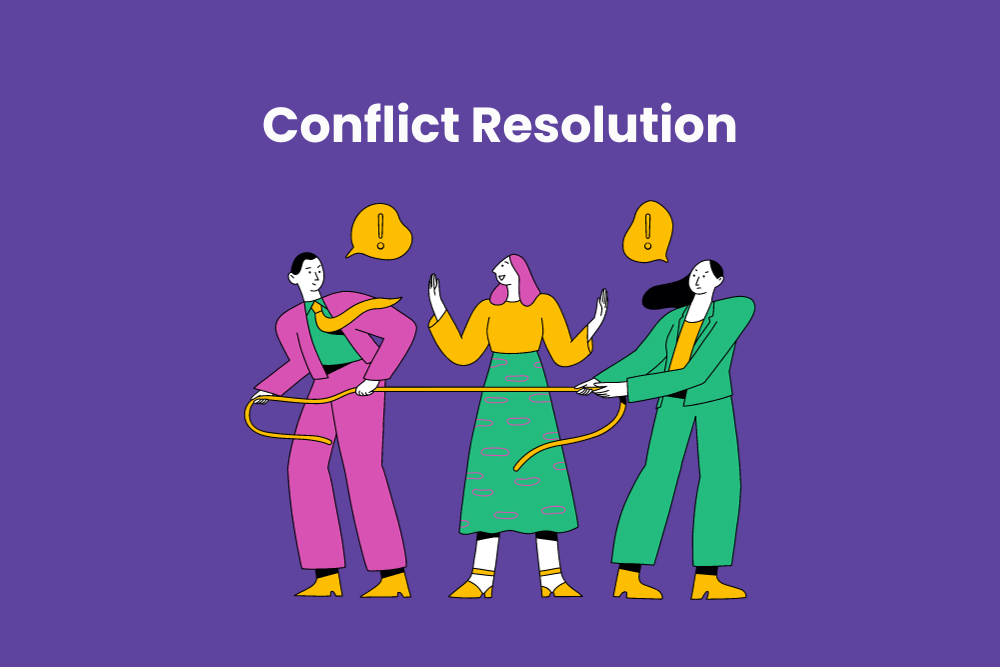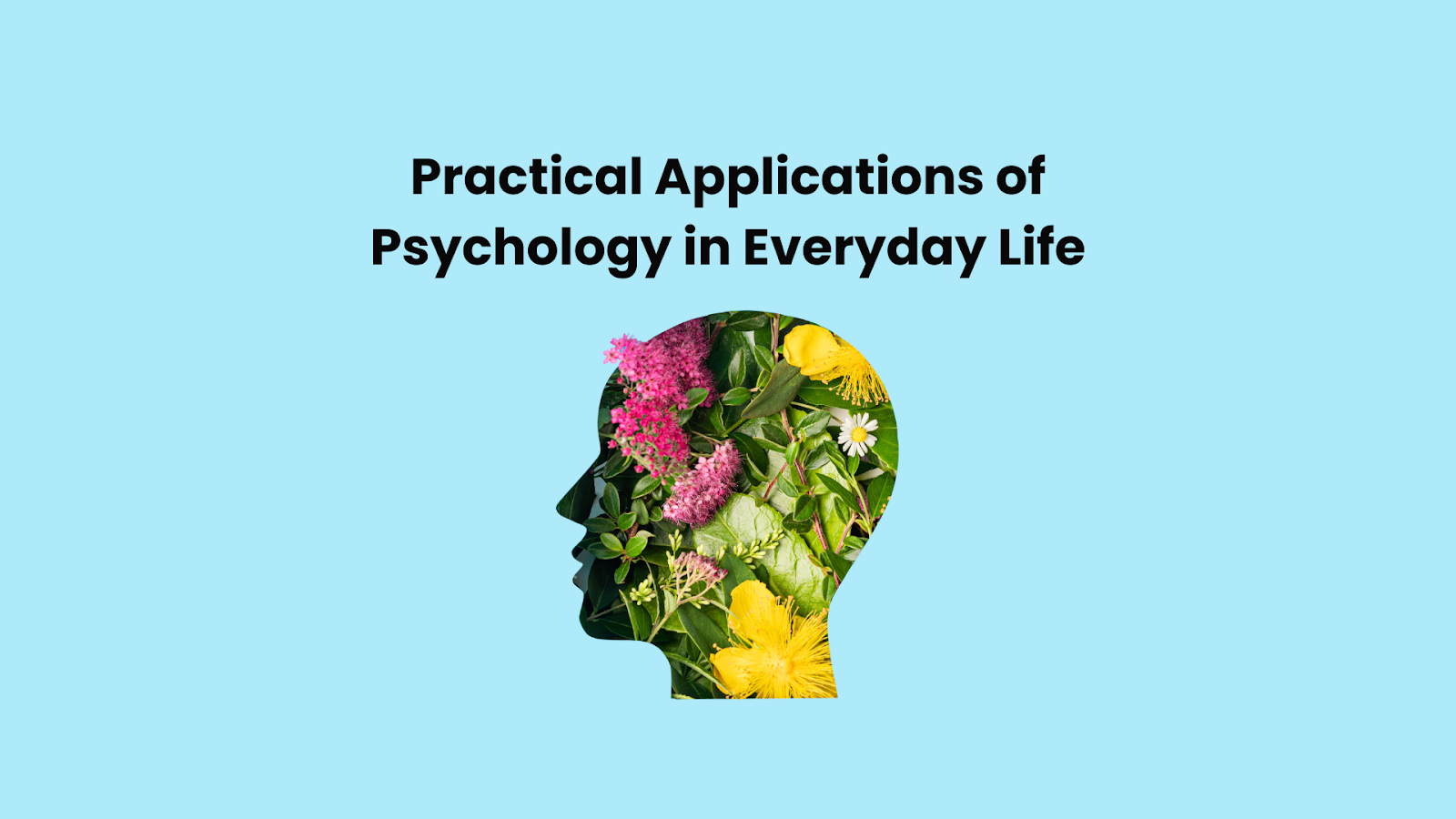Psychology has broad applications beyond the research lab or the therapist’s couch. It is often referred to as the study of behaviour and mind. It affects every facet of everyday life, including thoughts, behaviours, and interpersonal relationships. In this blog we’ll explore the useful uses of psychology in daily life, from bettering our mental health to comprehending human behaviour. Also, we’ll explore the significance of Health and Safety Courses. Let’s address the essential issue first, though: What is Psychology?
Table of contents
- What is Psychology
- Understanding Human Behavior
- Parenting and Child Development
- Education and Teaching
- Leadership and Management
- Improving Mental Well-being
- Stress Management
- Therapy and Counseling
- Positive Psychology
- Health and Safety Courses
- Risk Perception and Decision-Making
- Stress and Mental Health in the Workplace
- Training and Behavior Change
- Social Interactions and Relationships
- Conflict Resolution
- Empathy and Emotional Intelligence
- Persuasion and Influence
- Conclusion
What is Psychology?
The scientific study of human behaviour and thought processes is known as psychology. It aims to understand people’s thoughts, emotions, and behaviours in various settings and circumstances. Numerous subfields within this science are included in it, each having its specialisation and set of applications, such as clinical psychology, social psychology, cognitive psychology, and industrial-organisational psychology.
Understanding Human Behavior
Becoming more aware of human behaviour is one of psychology’s main uses. Psychology may be useful for anybody managing a team, teaching a school, or helping parents understand why their kid is throwing tantrums.
Parenting and Child Development
Parents who possess an understanding of child psychology may assist in raising emotionally sound and well-adjusted children. Understanding behavioural strategies, attachment theory, and developmental milestones may help parents support their child’s progress in all domains—cognitive, emotional, and physical.
Education and Teaching
Educators may improve their teaching strategies by incorporating concepts from educational psychology. Learning settings may be more productive and interesting using approaches like tailored teaching, active learning, and classroom management supported by psychological research.
Leadership and Management
Psychology is a key component of management and leadership in the workplace. Deeply ingrained in psychology, the ability to inspire staff, settle disputes, and foster a healthy workplace culture are essential elements of good management.
Improving Mental Well-being
Additionally, psychology offers helpful resources for enhancing mental health and addressing mental health issues.
- Those who are managing this prevalent mental health problem might benefit from understanding the psychology of stress. Stress reduction methods may be quite successful based on psychological concepts, such as mindfulness meditation, cognitive-behavioural therapy (CBT), and stress-reduction tactics.
- The most well-known use of psychology in mental health is in clinical settings. Counsellors and therapists assist people in addressing various mental health concerns by using a variety of therapeutic modalities, including behavioural therapy, humanistic therapy, and psychoanalysis.
- Happiness, well-being, and human qualities are the main topics of positive psychology. Its uses include assisting people in leading more contented lives by encouraging happiness, involvement, and deep connections.
Health and Safety Courses
Regarding psychology, safety and health are intimately related, especially in the workplace. Psychological concepts are often included in health and safety courses to protect workers’ well-beings.
Risk Perception and Decision-Making
Health and safety courses assist people in identifying and comprehending the psychological aspects that affect how they perceive risk and make decisions when faced with dangerous circumstances. With this insight, high-risk sectors may adopt safer procedures.
Stress and Mental Health in the Workplace
Stress, anxiety, and depression are mental health conditions that may significantly affect working productivity and safety. Health and safety courses provide methods and instruments for identifying and resolving these problems to establish a psychologically sound workplace.
Training and Behavior Change
Educational and behavioural psychology principles are often included in health and safety training programmes to optimise learning and encourage safe behaviours among staff members.
Social Interactions and Relationships
Understanding social psychology may improve communication and interpersonal interactions, resulting in more fulfilling relationships.
Conflict Resolution

Any relationship will always have conflict, but learning how to handle it positively may help. People may successfully manage conflicts using conflict resolution approaches illuminated by social psychology.
Empathy and Emotional Intelligence
In addition, social psychology delves into ideas like emotional intelligence and empathy, which are essential for forging deep and sympathetic bonds with other people.
Persuasion and Influence
People who understand social psychology may communicate more effectively and persuasively. Convincing people of an idea, closing a business, or communicating more effectively may all benefit from a grasp of social psychology.
Conclusion
Mental Health Courses play a crucial role in disseminating the insights and applications of psychology to a wide audience. Psychology’s influence extends far beyond professional or academic settings, benefiting individuals in various roles such as parents, teachers, bosses, and others. Additionally, alongside workplace health and safety courses, these programs contribute to enhancing connection building, stress management, behavioral comprehension, and fostering safer environments. By integrating psychology into our lives, we gain a deeper understanding of the complexities of human cognition and behavior, ultimately leading to personal growth, enhanced well-being, and stronger relationships with the external world.




